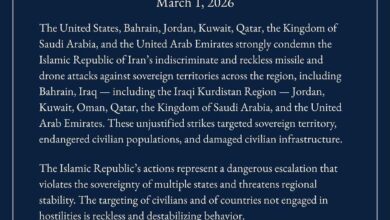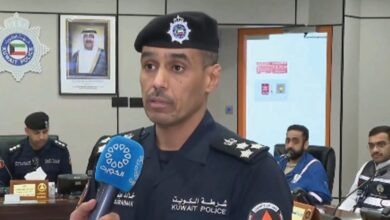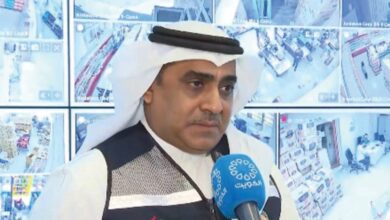Kuwait’s earthquake monitoring platform to enhance regional safety
The initiative includes setting optimal specifications for tall buildings and towers across the Gulf countries to minimize earthquake and aftershock risks, as well as conducting joint research and studies to further mitigate these risks.

• Dr. Abdullah Al-Enzi, Director of the Kuwait Seismological Monitoring Network at the Kuwait Institute for Scientific Research, emphasized the ‘start of the Gulf linkage process to establish the unified platform for monitoring earthquakes regionally and internationally, aiming for it to fall under the umbrella of the General Secretariat of the GCC.
Dr. Abdullah Al-Enzi, Director of the Kuwait Seismological Monitoring Network at the Kuwait Institute for Scientific Research, announced a Gulf initiative to establish a unified platform for monitoring earthquakes regionally and internationally, with standardized readings.
The initiative also includes setting optimal specifications for tall buildings and towers across the Gulf countries to minimize earthquake and aftershock risks, as well as conducting joint research and studies to further mitigate these risks, according to Al Rai newspaper.
Al-Enzi stated in an interview with Al-Rai newspaper that “this platform will support decision-makers in the event of an earthquake occurring in any Gulf country or in surrounding countries, God forbid, as unified information will be available to everyone, providing a consistent reading of the earthquake’s strength.” He also noted, “We experienced a discrepancy in the readings during the Kuwait earthquake in 2022, which was recorded by the national network as a magnitude 5 on the Richter scale.”
He emphasized the “start of the Gulf linkage process to establish the platform, aiming for it to fall under the umbrella of the General Secretariat of the Gulf Cooperation Council. Kuwait will host the 12th Gulf Earthquake Conference, which will take place from Monday to Wednesday. This conference, held every two years, aims to coordinate efforts between Gulf countries to monitor earthquakes and reduce their effects.”
He explained that “the conference will have forty five participants presenting forty five working papers, covering topics such as earthquakes, their risks, monitoring networks, and infrastructure development. Additionally, a workshop on emergency preparedness in the event of an earthquake will involve all relevant authorities, including the General Directorate of Civil Defense, the General Directorate of Kuwait Fire Force, Kuwait Oil Company, and others. Following this, an international company will give a series of lectures on early warning systems for earthquakes and how to prepare for them.”

He discussed the unified measures to be implemented across the Gulf countries before and after earthquakes, the most important of which is the preparation of infrastructure in buildings and towers, as well as the establishment of unified Gulf specifications for earthquake resistance, similar to those in Japan, Turkey, and other developed countries.
He stressed that “preparations should be made at the level of the Gulf countries to deal with the aftermath of earthquakes, such as preparing emergency plans after the earthquake.”
Al-Enzi concluded his statement by noting that “earthquakes and aftershocks in the central Arabian Peninsula are of medium magnitude, and the impact of nearby seismically active areas, such as the Zagros Mountains, is also limited. For example, it was struck by a magnitude 7.3 earthquake in 2017, 600 km from Kuwait, but its impact was limited.”












